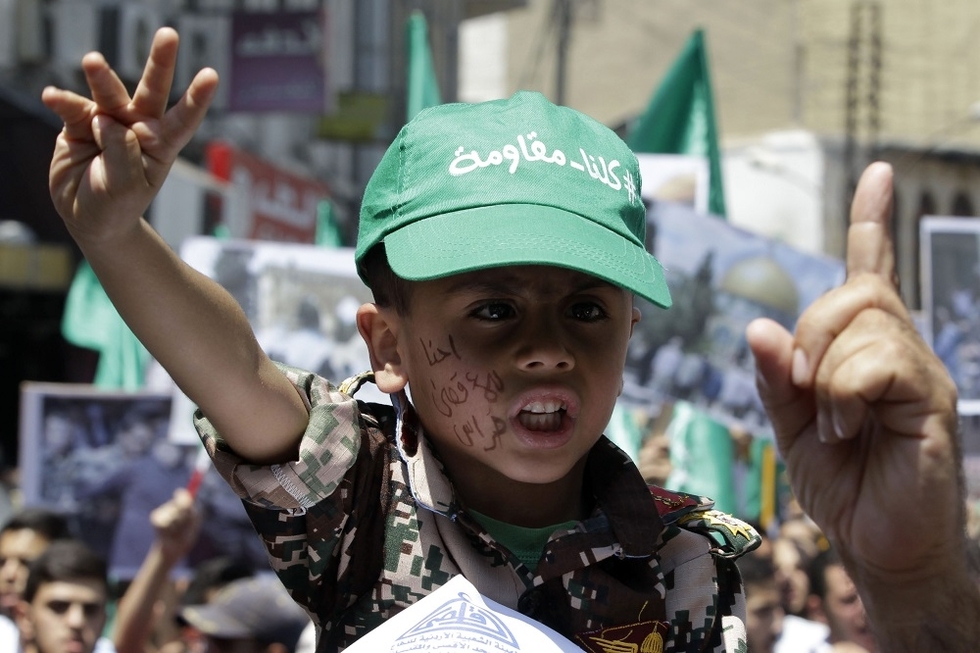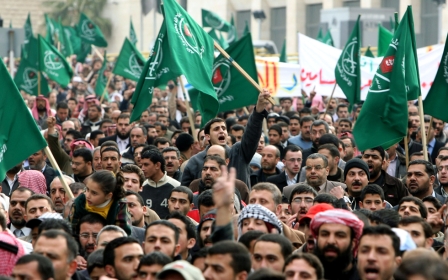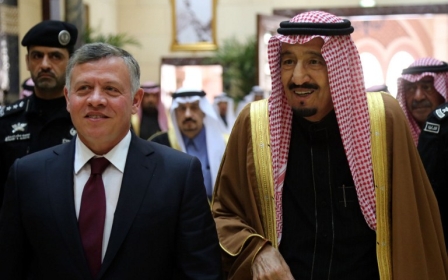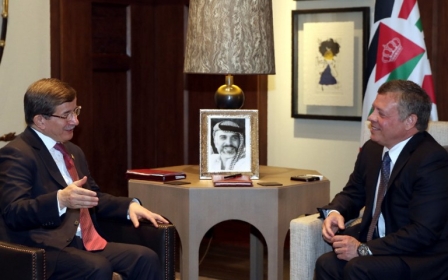More Muslim Brotherhood offices shuts down in Jordan

Jordanian security services on Thursday pressed ahead with further closures of Muslim Brotherhood offices, a day after the group's main Amman base was shut along with a base in the north.
The Brotherhood is the kingdom's main opposition force and has vowed to fight the measure in the courts.
Brotherhood spokesman Badi al-Rafaia said its offices were now sealed off with red wax in the towns of Mafraq, 70 kilometres northeast of Amman, and Madaba, 30 kilometres to the south of the capital.
Jordanian authorities say they have closed the offices because the Brotherhood failed to renew licences in accordance with a political party law adopted in 2014.
"This is clearly a political decision in line with what is happening in the region," Khatib told AFP.
The closures "has the sole purpose" of influencing legislative elections expected to be held early next year, he added.
Previously tolerated for decades in Jordan, the Brotherhood has had tense relations with the authorities since the Arab Spring uprisings that shook the region in 2011.
The movement, in a statement published on Thursday, said the closures "take us back to the days of martial law when order and justice are not respected" and pledged "to take judicial and political measures against these illegal pressures".
Jordan was ruled under martial law since the Arab defeat in the 1967 war with Israel until 1991 when popular pressure for liberalisation led to reform.
The Jordanian branch of the movement, which was formed in Egypt in 1928 and has affiliates across the region, has wide grassroots support in the kingdom.
However, the organisation split last year with the government recognising the smaller offshoot group instead of the larger original faction which was hit by the wave of closures.
Other governments in the region, particularly the Gulf monarchies, are also deeply suspicious of the Brotherhood, fearing that its brand of grass-roots activism and political Islam could undermine their authority.
The Brotherhood's second-in-command in Jordan, Zaki Bani Rsheid, was sentenced to 18 months in prison in February 2015 for criticising a decision by the United Arab Emirates to blacklist the organisation.
In Egypt, it has been blacklisted as a "terrorist group" and the authorities have cracked down hard on its members, including ousted president Mohamed Morsi.
The Jordanian branch of the Brotherhood accuses the authorities of trying to exploit divisions within the organisation.
But analysts have stressed that the office closure is likely an underhanded way of extracting concessions from the Muslim Brotherhood and pressuring them to not boycott the coming elections, which would undermine the legitimacy of the vote.
New MEE newsletter: Jerusalem Dispatch
Sign up to get the latest insights and analysis on Israel-Palestine, alongside Turkey Unpacked and other MEE newsletters
Middle East Eye delivers independent and unrivalled coverage and analysis of the Middle East, North Africa and beyond. To learn more about republishing this content and the associated fees, please fill out this form. More about MEE can be found here.




